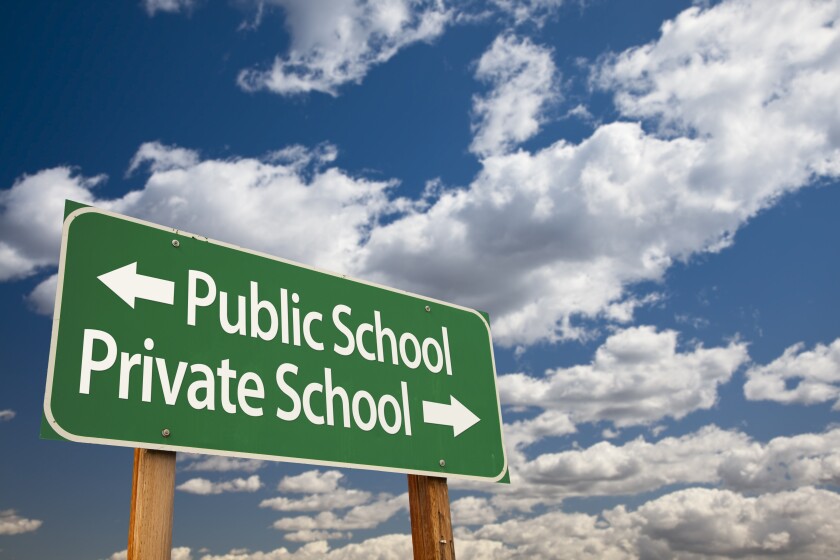As it became all too clear during the pandemic, education is a sector that has a big impact on everything else. Parents can’t go to work if their kids can’t go to school. And communities can’t fulfill their potential unless they improve their education systems.
That’s what makes a recent analysis by our organizations, the U.S. Chamber of Commerce Foundation and the Thomas B. Fordham Institute, so important. It allows major metropolitan areas to benchmark themselves against similar metros nationwide when it comes to the quality of their schools.
Unlike other education rankings, this one doesn’t just look at raw test scores or graduation rates, given that those are famously correlated with demographics and socioeconomic factors. Instead, the Chamber Foundation–Fordham study primarily looks at how much students are learning over the course of the school year, including students from disadvantaged subgroups.
The results are eye-opening. At the top of the rankings aren’t the usual suspects — metro areas with sky-high incomes and hyper-educated adults like Washington, D.C., New York City or San Francisco. Instead, we see regions that have done the hard work and made the tough investments to improve their education systems over time, most notably Atlanta, Indianapolis, Memphis and Miami, along with Texas’ Rio Grande Valley.
The analysis can’t tell us for sure what it is that these metro areas are doing right. But it is notable that they have all embraced public school choice and competition in one form or another; all have high-quality and growing charter school sectors. Competition helps businesses and economies improve, and it also works in education.
Another key reform lever is the smart use of data. Business leaders can hold school systems accountable by demanding transparent data on student progress. Shining examples of this include the Greater Phoenix Chamber Foundation’s Arizona Economic Dashboard and the Detroit Regional Chamber of Commerce’s State of Education report.
Local business stakeholders can also lend their expertise on return on investment to help local districts make smart spending decisions that invest in students. They can support convenings and capacity building that help districts implement evidence-based strategies known to accelerate student learning. They can help forge partnerships between high schools and industry leaders to strengthen career and technical education and connect teaching with workforce needs, as is accomplished by the Greater Houston Partnership’s UpSkill Houston initiative and the Dallas Regional Chamber’s Externships for Educators and Administrators. Local business leaders can also leverage the U.S. Chamber Foundation’s Talent Pipeline Management Initiative, where employers work with educators to build pathways to jobs. School board elections can also be a powerful platform for change: A big victory in Albuquerque this year shows what’s possible when everyone, including the business community, gets involved.
The metro rankings study focuses on results prior to the pandemic, but quality schools are more important now than ever. To create a dynamic and diverse economy of the future, it’s crucial that we build accessible, equitable and quality pathways in K-12 education. Success in adult life begins with the skills learned in school, and tomorrow’s economy will require a highly trained workforce.
As businesses and their associations work to dig out from their current challenges, they should also look to these leading metropolitan areas for inspiration and blueprints for how to make sure that schools are delivering what they need.
Cheryl Oldham is senior vice president at the Center for Education and Workforce at the U.S. Chamber of Commerce Foundation and vice president of education policy at the U.S. Chamber of Commerce. Michael J. Petrilli is president of the Thomas B. Fordham Institute.
Governing’s opinion columns reflect the views of their authors and not necessarily those of Governing’s editors or management.
Related Content












